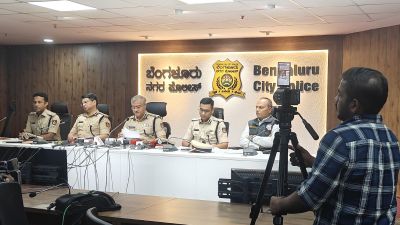Stay updated with the latest - Click here to follow us on Instagram
HC quashes interim application against AAP MLA Surender Singh
According to the application, at the time of filing the nomination papers, Surinder Singh had said he was a graduate in arts in 2012 from Sikkim University.
Stating that the incorrect disclosure of the university from where Delhi Cantt MLA Surender Singh pursued his graduation was not a deliberate attempt to influence voters, the Delhi High Court has quashed an interim application filed against him by BJP leader Karan Singh Tanwar.
The court, however, ruled that the election petition against Singh “shall have to go through the rigours of a full fledged trial for a decision”.
According to Karan Singh Tanwar’s application, at the time of filing the nomination papers – in an affidavit dated January 19, 2015 – Surender Singh had said he was a graduate in arts in 2012 from Sikkim University. When Tanwar filed an application under the RTI Act to Sikkim University, he received a reply saying there was no student named Surender Singh in its records. So, Singh’s affidavit was a “gross misrepresentation”, besides a corrupt practice under the relevant section of the Representation of People (RP) Act. But the Returning Officer did not reject his nomination paper.
In his counter, Singh said he had graduated not from Sikkim University but from Eastern Institute for Integrated Learning in Management (EILM) University, Sikkim. Because of “an inadvertent typographical error”, Sikkim University’s name was mentioned. Also, being a graduate was not a pre-requisite to stand in elections, Singh said.
Justice Hima Kohli said according to the legal principles, every voter had a fundamental right to know about information pertaining to a candidate. This included criminal antecedents, financial background, liabilities and educational qualification. This was to enable the members of a democratic society to be well informed and take an intelligent and calibrated decision of casting their vote.
“Such disclosures are a step-in-aid for voters to evaluate the relative pros and cons of the candidates before casting their precious vote. Non-furnishing of the information would amount to falsehood.” the judge said.
Disagreeing with Singh’s argument that graduation degree was not a pre-requisite, the judge said voters were often swayed by the educational qualification of a candidate. But, Singh’s highest qualification was not under the scanner as he had filed marksheet copies of all three years from EIILM University. The judge observed that he had also not made any “tall claim”, saying he had graduated from a university of national eminence. So, it could not be said that graduating from EIILM University instead of Sikkim University was so much of a value addition to have swung the votes in his favour.
“The said defect in the disclosure is not of such a substantial character to prejudice the election, or for it to be termed as corrupt practice,” said the judge, while dismissing the interim application.
The matter was listed for framing of issues on, April 21. As the issues have been framed the matter is now listed before the Joint Registrar of the court on July 5 and further before the court on December 8.







